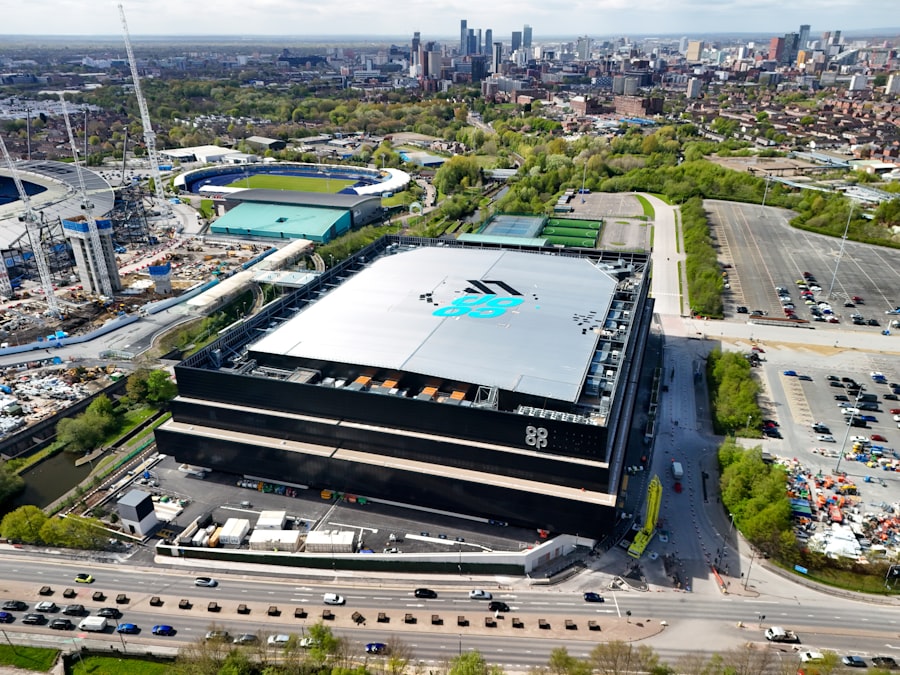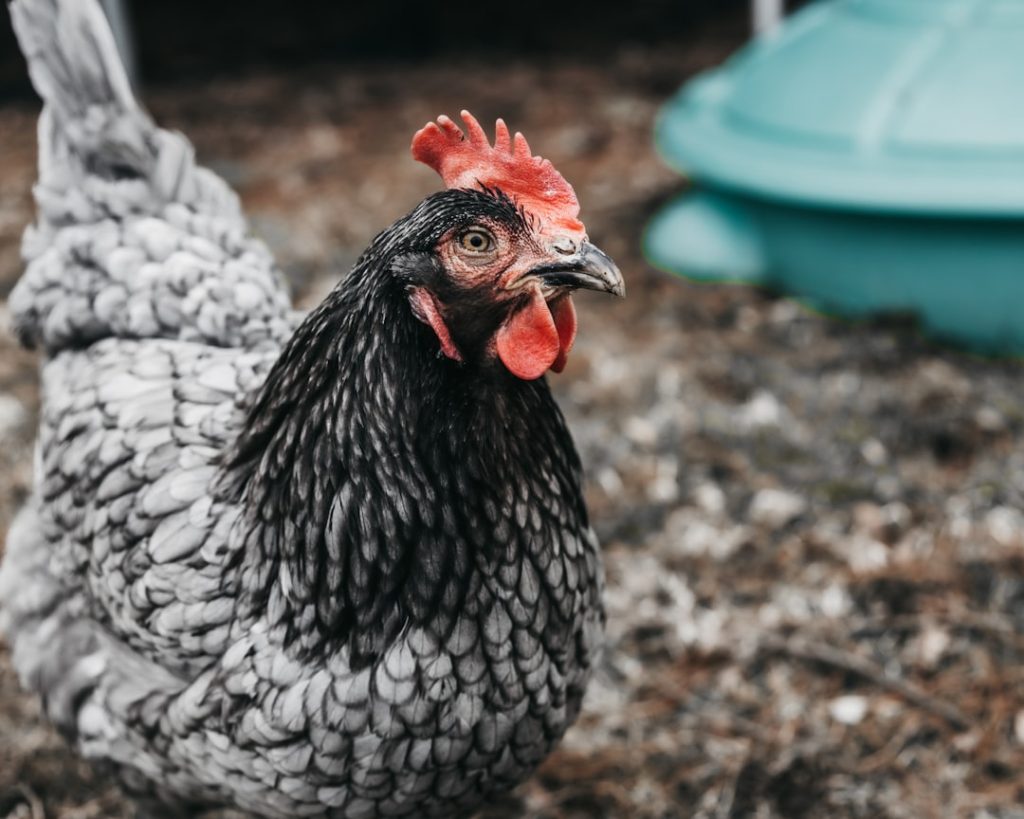Heat stress is a significant concern for chickens, particularly during periods of high temperature. Chicken owners must be vigilant in recognizing the symptoms of heat stress to prevent illness or mortality in their flock. Common indicators of heat stress include panting, wing spreading, lethargy, reduced egg production, and in severe cases, sudden death.
Close observation of chickens during hot weather is essential for early detection of these signs. Certain chicken breeds are more susceptible to heat stress due to their physical characteristics. Chickens with feathered legs or dense plumage have greater difficulty regulating their body temperature, making them more vulnerable to heat-related issues.
Additionally, older chickens and young chicks are at higher risk of experiencing heat stress. Understanding the signs of heat stress and identifying which chickens are most susceptible allows owners to implement preventive measures effectively. This knowledge is crucial for maintaining the health and well-being of the flock during hot weather conditions.
Table of Contents
- 1 Providing adequate shade and ventilation in the coop
- 2 Using misters and fans to lower the temperature
- 3 Offering cool treats and frozen treats for chickens
- 4 Providing plenty of fresh, cool water
- 5 Adjusting feeding schedules to avoid heat stress
- 6 Monitoring and adjusting chicken care during heat waves
- 7 FAQs
Key Takeaways
- Panting, lethargy, reduced egg production, and pale combs are signs of heat stress in chickens
- Ensure the coop has adequate shade, good ventilation, and is well insulated to keep the temperature down
- Use misters and fans to lower the temperature in the coop during hot weather
- Offer cool treats like watermelon and frozen treats like ice blocks with fruits to help chickens cool down
- Provide plenty of fresh, cool water and consider adding electrolytes to keep chickens hydrated
- Adjust feeding schedules to cooler times of the day and consider adding electrolytes to their water
- Monitor chickens closely during heat waves and make necessary adjustments to their care to prevent heat stress
Providing adequate shade and ventilation in the coop
Shade and Ventilation: The Key to Heat Stress Prevention
One of the most important steps in preventing heat stress in chickens is to ensure that their coop has adequate shade and ventilation. This means providing a shaded area where the chickens can escape the direct sun, as well as ensuring that there is good airflow throughout the coop. You can create shade by using tarps, umbrellas, or even planting trees or shrubs near the coop.
Windows and Vents: Allowing for Air Circulation
It’s also important to make sure that the coop has plenty of windows or vents to allow for air circulation. This will help prevent the buildup of heat inside the coop and keep the chickens cool.
Coop Construction Materials: A Crucial Consideration
In addition to providing shade and ventilation, it’s also important to consider the materials used in the construction of the coop. Metal coops, for example, can become extremely hot in the sun and should be avoided in hot climates. Instead, opt for coops made of wood or other materials that don’t conduct heat as easily.
By providing adequate shade and ventilation in the coop, you can help your chickens stay cool and comfortable even during the hottest days of summer.
Using misters and fans to lower the temperature

In addition to providing shade and ventilation, using misters and fans can be an effective way to lower the temperature in and around the chicken coop. Misters work by spraying a fine mist of water into the air, which then evaporates and cools the surrounding area. This can be especially helpful in dry climates where the air is hot and dry.
Fans can also be used to circulate air and create a cooling breeze for the chickens. Placing fans strategically around the coop can help lower the overall temperature and make it more comfortable for the chickens. When using misters and fans, it’s important to make sure that they are placed in areas where the chickens can access them easily.
For example, you may want to set up misters near the areas where the chickens like to roost or spend time during the day. Similarly, fans should be positioned so that they create a gentle breeze throughout the coop without causing any drafts. By using misters and fans to lower the temperature, you can help your chickens stay cool and comfortable even on the hottest days.
Offering cool treats and frozen treats for chickens
Another way to help chickens beat the heat is by offering them cool treats and frozen treats. This can not only provide some relief from the heat but also encourage hydration, which is crucial during hot weather. Some cool treats that you can offer your chickens include watermelon, cucumbers, and lettuce.
These fruits and vegetables have high water content and can help keep your chickens hydrated. You can also freeze these treats before giving them to your chickens for an extra cooling effect. In addition to fresh produce, you can also make frozen treats for your chickens by freezing things like berries, peas, or corn in ice cube trays.
Once frozen, you can offer these treats to your chickens as a refreshing snack on hot days. Not only will these treats help keep your chickens cool, but they will also provide them with essential nutrients and hydration. By offering cool treats and frozen treats, you can help your chickens stay healthy and comfortable during the summer months.
Providing plenty of fresh, cool water
One of the most important things you can do to prevent heat stress in chickens is to provide them with plenty of fresh, cool water. Chickens need access to clean water at all times, but this is especially crucial during hot weather when they are at risk of dehydration. Make sure that your chickens’ water containers are kept in shaded areas to prevent them from heating up in the sun.
You can also add ice cubes to their water containers to help keep the water cool throughout the day. In addition to providing cool water, it’s important to monitor your chickens’ water intake during hot weather. If you notice that they are drinking less than usual, it may be a sign that they are becoming dehydrated.
In this case, you may need to take additional steps to encourage them to drink more water, such as offering electrolyte supplements or wetting their feed. By providing plenty of fresh, cool water, you can help your chickens stay hydrated and healthy even in the hottest temperatures.
Adjusting feeding schedules to avoid heat stress

Timing is Everything
During hot weather, it’s essential to adjust your chickens’ feeding schedules to help prevent heat stress. Feeding your chickens early in the morning or later in the evening when temperatures are cooler can help reduce their metabolic heat production during the hottest part of the day. Additionally, feeding them smaller meals more frequently throughout the day can also help prevent overheating.
Choosing the Right Feed
In addition to adjusting feeding times, it’s also important to consider the type of feed you are giving your chickens during hot weather. Feeds that are high in protein can increase metabolic heat production, so it may be beneficial to switch to a lower protein feed during the summer months.
Adding Extra Support
You can also consider adding electrolytes or vitamins to their feed to help support their overall health during hot weather. This extra support can make a significant difference in keeping your chickens healthy and thriving during the hot summer months.
Keeping Your Flock Healthy
By adjusting feeding schedules and being mindful of the type of feed you are giving your chickens, you can help prevent heat stress and keep your flock healthy. With these simple changes, you can ensure your chickens stay happy and healthy all summer long.
Monitoring and adjusting chicken care during heat waves
Finally, it’s important to monitor your chickens closely during heat waves and be prepared to make adjustments to their care as needed. This may include checking on them more frequently throughout the day, providing additional shade or ventilation if necessary, and being prepared to take action if any signs of heat stress are observed. It’s also important to be aware of local weather forecasts so that you can anticipate any upcoming heat waves and be prepared to take proactive measures.
During extreme heat events, it may be necessary to take additional steps to keep your chickens cool and comfortable. This could include setting up temporary shelters or misting systems, providing extra water sources, or even moving your chickens indoors if outdoor conditions become too extreme. By monitoring your chickens closely and being prepared to make adjustments as needed, you can help ensure that they stay safe and healthy during even the hottest weather.
In conclusion, understanding how to prevent heat stress in chickens is crucial for any chicken owner, especially during the hot summer months. By recognizing the signs of heat stress, providing adequate shade and ventilation, using misters and fans, offering cool treats and frozen treats, providing plenty of fresh, cool water, adjusting feeding schedules, and monitoring and adjusting chicken care during heat waves, you can help keep your flock healthy and comfortable even in extreme temperatures. With proper care and attention, you can ensure that your chickens stay safe and happy all summer long.
If you’re looking for more tips on keeping your chickens healthy and happy, you might want to check out this article on how to convert a shed into a chicken coop. Creating a comfortable living space for your chickens is essential, especially during hot weather, and this article provides valuable insights on how to repurpose an existing structure to meet your flock’s needs.
FAQs
What are the signs of heat stress in chickens?
Signs of heat stress in chickens include panting, holding their wings away from their bodies, decreased egg production, lethargy, and loss of appetite.
How can I keep my chickens cool in hot weather?
You can keep your chickens cool in hot weather by providing plenty of shade, ensuring good ventilation in the coop, offering cool water to drink, and providing frozen treats such as fruits and vegetables.
What are some ways to provide shade for chickens?
You can provide shade for chickens by using tarps or shade cloths to cover their coop and run, planting trees or shrubs to create natural shade, and using umbrellas or awnings in their outdoor areas.
How can I improve ventilation in my chicken coop?
You can improve ventilation in your chicken coop by installing windows or vents to allow for cross ventilation, using fans to circulate air, and ensuring that the coop is not overcrowded.
What should I do if I suspect my chickens are suffering from heat stress?
If you suspect your chickens are suffering from heat stress, move them to a cooler area with plenty of shade and provide them with cool water to drink. You can also offer electrolyte supplements to help them rehydrate. If the symptoms persist, consult a veterinarian.
Meet Walter, the feathered-friend fanatic of Florida! Nestled in the sunshine state, Walter struts through life with his feathered companions, clucking his way to happiness. With a coop that’s fancier than a five-star hotel, he’s the Don Juan of the chicken world. When he’s not teaching his hens to do the cha-cha, you’ll find him in a heated debate with his prized rooster, Sir Clucks-a-Lot. Walter’s poultry passion is no yolk; he’s the sunny-side-up guy you never knew you needed in your flock of friends!







